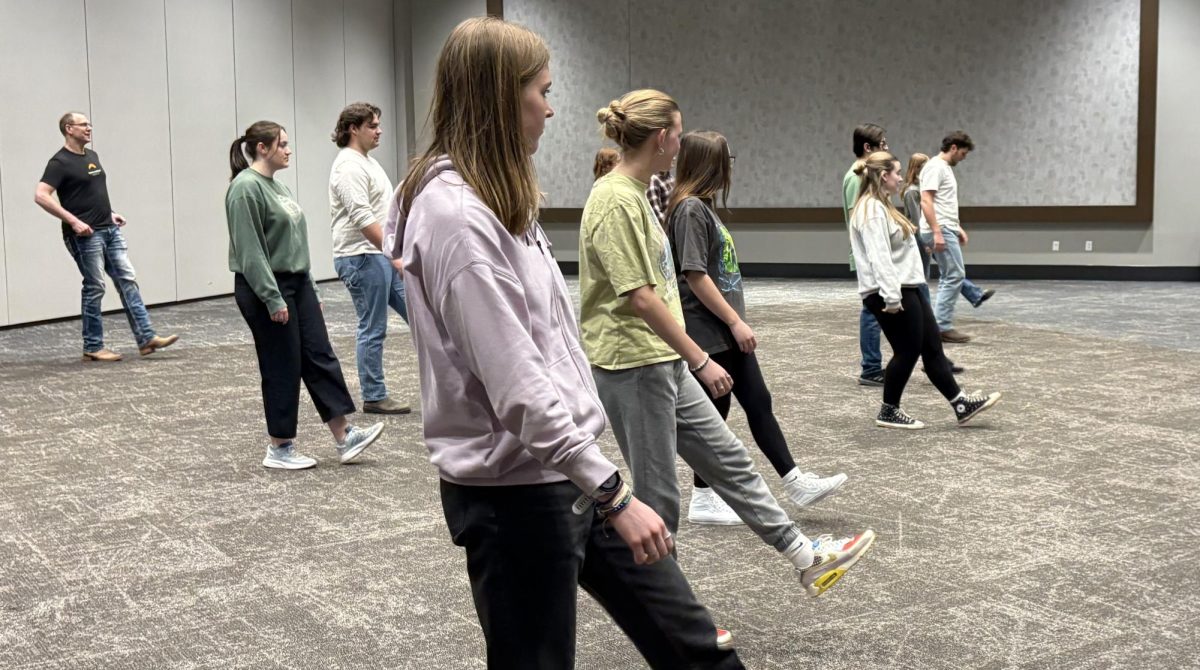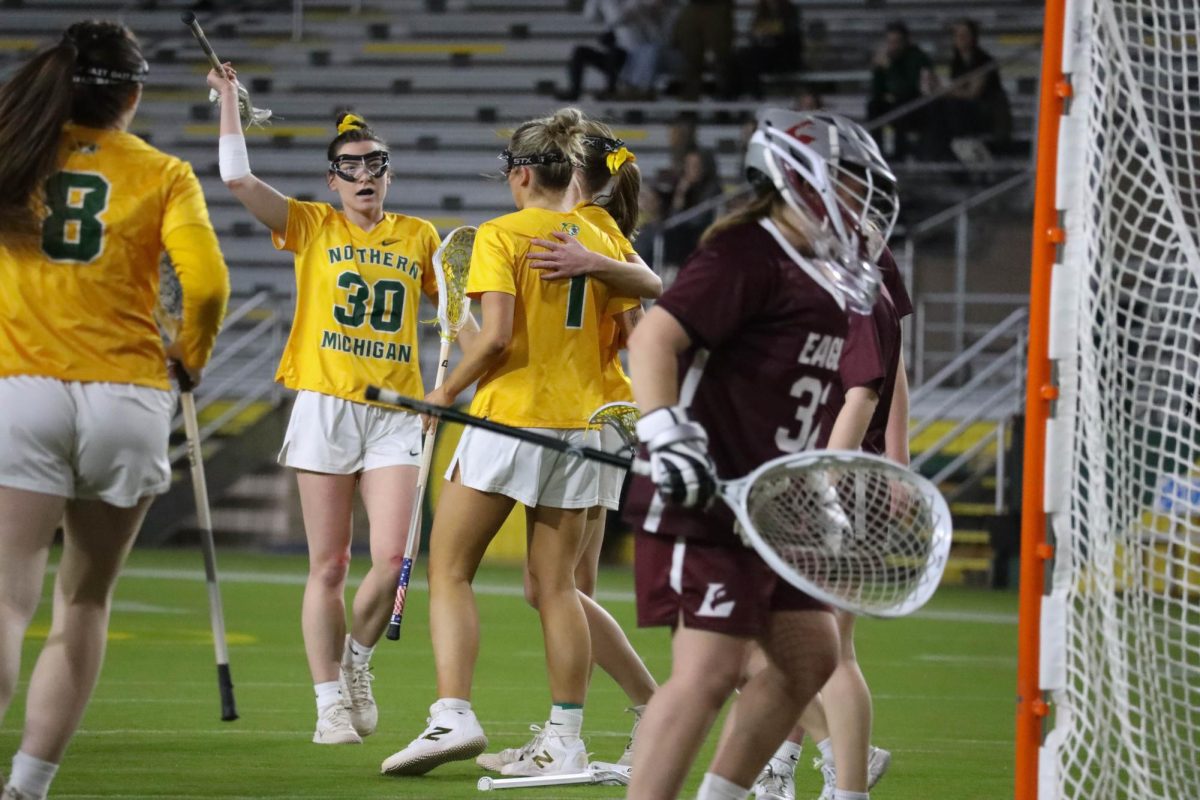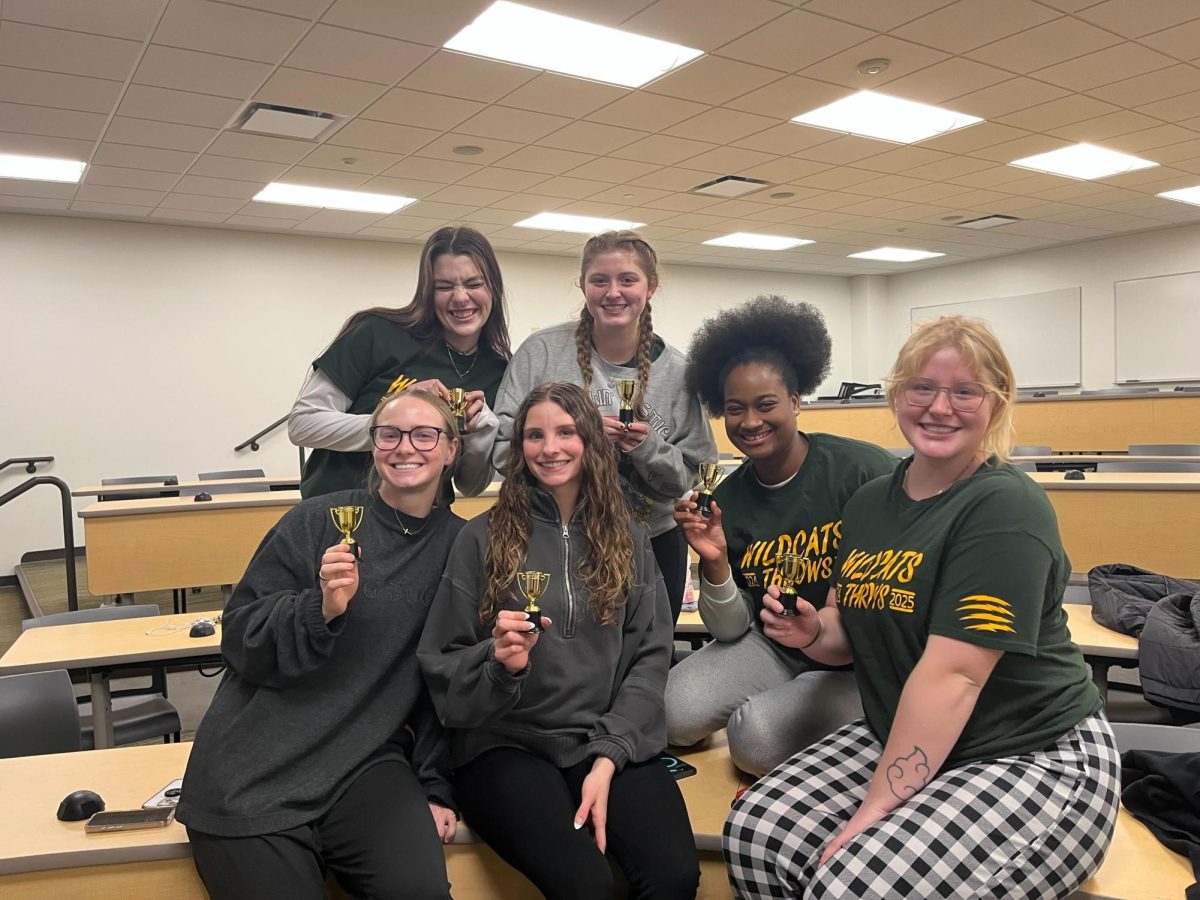When Frankie McCormick moved to Marquette in 1995, she had a Ph.D. in organic chemistry but no job.
Her husband, Don Marquardt, had been hired as a full-time chemistry professor at NMU, but there were no other job openings for which McCormick could apply. So instead of sitting at home, she took an adjunct, or part-time, faculty position with the chemistry department.
During her first semester at Northern, McCormick was assigned 11 credit hours-one shy of full-time, which would have afforded her higher pay and contractual benefits such as health care.
“You’re working almost as hard as a full-time professor,” she said. “You get in this position and it can be hard to move out of it, hard to move up.”
After a series of part- and full-time appointments, McCormick made assistant professor in 2003, but many academics across the country face a similar scenario to the one she faced in 1995.
As universities’ budgets dry up around the country, administrators are seeking cheaper staffing options, and because part-time faculty receive few benefits, university’s are hiring adjunct instructors en masse. But while hiring more adjunct faculty may seem the perfect solution to budgetary woes, part-time faculty are forced to deal with tenuous contracts, a lack of benefits, low pay and oftentimes, a lack of credibility in their respective field.
Nationwide, 46 percent of faculty work part-time-a 50 percent increase since 1975, according to a 2006 report by the Association of American University Professors (AAUP). At Northern, 41 percent of the teaching staff is part-time, said Fred Joyal, provost and vice president of academic affairs.
“What we do is staff at the last moment,” Joyal said. “If we open another section of English, we staff it with an adjunct. We intentionally will increase the number of low-cost faculty. We can’t afford to pay all full-time faculty-unless we want University of Michigan tuition rates.”
But while hiring adjunct faculty may be financially convenient for the university, the positions are often inconvenient for those filling them.
“I would not have been able to have had a position like that if I had been the sole provider for my family,” McCormick said.
Heidi Stevenson has been an adjunct instructor in the English department since 2003. She is currently pursuing a Ph.D. in English from the University of Indiana in Pennsylvania, and said that her position at NMU provides her with no health care.
“I have to decide every semester if I want to continue doing this-my profession, my passion,” she said. “I have to decide if I want to continue to do that and take my chances with health care versus finding a job where I would have health care.”
“Ideally, I think adjuncts could receive some sort of health benefits,” she continued. “But it’s never been seriously talked about for us, so it’s not something I consider every time the state makes announcements about the budget.”
McCormick has a Ph.D. and Stevenson is working toward one, but many adjunct faculty have only a master’s degree, said AAUP President Krista Clumpner. But that does not mean adjuncts provide a lower quality of instruction, she added. Many adjunct faculty are professionals working in the community who also teach part time at Northern. For example, the business department employs several business lawyers to teach business law classes.
“Adjunct does not mean inferior teaching,” Clumpner said. “In some cases, they may have a special knowledge or experience that is good to bring to the classroom.”
For years, the proportion of adjunct faculty at Northern was roughly 25 percent, Clumpner said, but the flagging state budget has forced Northern to hire more adjuncts-and with them has come a slew of new issues.
Adjunct faculty are not covered by the AAUP, and that means they’re not as involved in professional development, Clumpner said.
“They can feel disenfranchised, and that can lead to them being left out of the loop because so many things can happen while they’re not around,” she added. “But I don’t think it’s intentional, I think it’s just circumstance.”
The academic freedom of adjunct faculty has also come into question. Adjunct instructors are hired on a semester-to-semester basis, but Clumpner said she doesn’t know of any instances where administration has openly silenced adjuncts at NMU.
“There’s always that potential that if you don’t teach a certain way, you won’t have a job anymore,” she said.
“Ultimately, I think it’s a negative trend for higher education, but I can see the need for it in certain instances, but you really have to look at the potential for misuse,” she said. “If everyone is so concerned with staying employed that they don’t feel they can teach fairly, then that will ultimately hurt the students-and nobody wants that to happen.”
At a university forum in April 2006, President Les Wong announced that NMU would hire the equivalent of 60 full-time faculty positions over the next five years.
“You can’t go up in enrollment unless you’re willing to add faculty and staff to service the increase,” he said at the forum. “That’s the dilemma in Michigan. Campuses are growing and state support is declining-we need to figure this into our planning.”
The majority of the new hires would be part-time faculty, Joyal said, 15 of which have been hired this year.
“Would [the AAUP] prefer all tenure-track faculty? Would I prefer all tenure-track faculty? Sure,” Joyal said. But that just isn’t financially feasible, he continued. “If circumstances would allow for all full-time faculty, that would be great.”
To address complaints about benefits and academic freedom, adjunct faculty across the country have begun to ask local AAUP chapters to include them in their contracts. This increases their pay, affords them limited benefits and ensures greater job security.
“I’m sure if we were covered by the AAUP, our pay scale would be very different,” said English Adjunct Carol Smith, who has taught at Northern for the past 20 years.
Along with a master’s in writing, Smith holds a nursing degree, and for many years, she has worked as a nurse on a contingent basis.
Even as a part-time nurse, Smith said, she is required to be a member of the nurses’ union, which provides her with some job security. This is evidence for Smith that union inclusion of part-timers can work.
But for now, she said, her part-time status remains wearisome.
“You feel like you have no credibility,” she said. “No matter how many years you’ve taught, no matter how many courses you’ve taught, you feel invisible.”

























